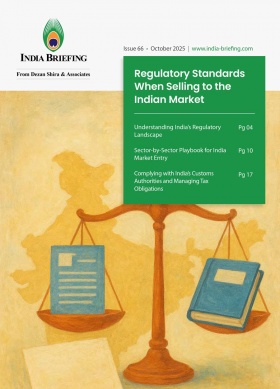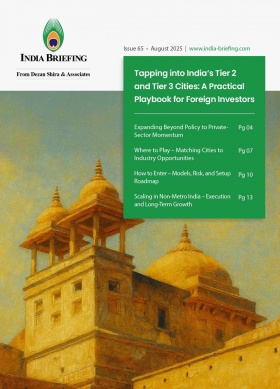Public Holidays in India 2026 and Key HR Considerations
Explore India’s 2026 public holiday calendar including national, gazetted, restricted, and state-wise holidays. Learn how HR and payroll teams can plan ahead to stay compliant with labor laws.
India’s public holiday calendar for 2026 includes mandatory Gazetted holidays, optional Restricted holidays, and numerous state-specific observances. All companies must observe the three national holidays mandated under the National and Festival Holidays Act: Republic Day (January 26), Independence Day (August 15), and Gandhi Jayanti (October 2).
Organizations should review holiday schedules in advance to align workforce planning, payroll cycles, and business continuity arrangements.
Why holiday planning matters for businesses in India
Effective holiday scheduling remains a strategic business priority in India due to the country’s cultural diversity and varied state-level observances. Companies that proactively align business operations with national and local holiday calendars can:
- Maintain operational continuity and reduce downtime
- Improve resource allocation for project and sales planning
- Strengthen employee engagement and retention
- Reduce compliance risks associated with employment and labor laws
For multinational companies and foreign employers, this is particularly critical. Many employees prioritize participation in cultural and religious festivals. Ensuring flexibility through restricted holiday lists or tailored state-wise schedules helps create inclusive HR policies and supports a positive employer brand.
Sectors such as manufacturing, logistics, retail, customer support, and IT services often see seasonal fluctuations around major festivals. Coordinating holiday planning with client and supply-chain schedules therefore directly supports performance commitments and service-level delivery.
At the compliance level, businesses must observe holidays prescribed by relevant state laws and labor regulations. Operating on mandatory national holidays requires prior government authorization, and non-compliance can result in penalties.
In short, holiday planning is not just an HR formality; it is a core part of annual business planning in India.
Types of public holidays in India
India’s official public holiday calendar is categorized into different types, such as gazetted, restricted, and holidays specific to individual states and union territories.
Managing the country’s diverse holiday schedule can be challenging, especially for foreign HR managers, as central and state governments account for the cultural and regional diversity of over 1.46 billion people across 28 states and 8 union territories.
Companies operating in India need to navigate multiple layers of public holidays issued at both the central and state levels. Clear planning ensures uninterrupted operations, compliance, and timely payroll execution.
|
Holiday type |
Issuing authority |
Applicability |
Examples |
|
National holidays |
Central government (mandatory) |
All states, sectors, and establishments |
Republic Day, Independence Day, Gandhi Jayanti |
|
Gazetted holidays |
Central Government (annual schedule) |
Central government offices and widely followed nationwide |
Holi, Eid, Diwali, Christmas |
|
State holidays |
Individual state governments |
Only within that state |
Onam (Kerala), Chhath Puja (Bihar), Baisakhi (Punjab) |
|
Restricted holidays |
Central government (optional list) |
Employees may choose 1–2 based on personal preference |
Karva Chauth, Janmashtami, Raksha Bandhan |
Paid leave on election days
Employers must also plan for parliamentary election or legislative assembly days, which are designated paid holidays for registered voters.
Section 135B of the Representation of the People Act, 1951, mandates a paid holiday for all employees entitled to vote in a general election to the House of the People or a State Legislative Assembly. The holiday is paid, meaning no wages are deducted, and even if the employee is usually unpaid on such days, they must still be paid their regular wages for that day. Employers who fail to comply can be fined up to INR 500.
This provision does not apply to employees whose absence would cause danger or substantial loss to their employment
Upcoming assembly elections in India (2025-2026)
Bihar assembly elections
- Phase I: November 6, 2025
- Phase II: November 11, 2025.
Assembly elections in India in 2026
The following states are scheduled for assembly elections in 2026. Official dates are yet to be announced by India’s Election Commission:
|
State |
Status |
Advisory notes for employers and HR |
|
Assam |
Dates to be announced |
Expect statutory paid leave on polling day for registered voters. |
|
Kerala |
Dates to be announced |
Plan for potential business closures and service-hour adjustments. |
|
Tamil Nadu |
Dates to be announced |
Consider scheduling flexibility and staffing buffers during campaign and polling periods. |
|
West Bengal |
Dates to be announced |
Review local government circulars for region-specific holiday declarations. |
Managing holiday schedules and legal requirements
Managing holiday schedules in India remains flexible, with most companies offering between 8 and 14 public holidays based on historical practices, industry standards, and state-specific regulations. Companies interacting with state or government bodies must follow the respective official holiday calendars. For instance, government offices in the National Capital Territory (NCT) of Delhi are expected to observe 21 gazette holidays in 2026.
Key employment laws governing holiday entitlements
Holiday entitlements in India are largely regulated by several key laws:
- The Weekly Holidays Act, 1942;
- The Industrial Employment (Standing Orders) Act, 1946;
- The National and Festival Holidays Act, 1963;
- The Negotiable Instruments Act, 1981;
- The Companies Act, 2013; and
- The Shops and Commercial Establishments Act.
Of these, the National & Festival Holidays Act is applicable to all establishments nationwide, mandating closures on three national holidays:
- Republic Day, January 26;
- Independence Day, August 15; and
- Gandhi Jayanti, October 2.
All organizations in India—whether public, private, or multinational—are required to observe these holidays. Those needing to operate on these dates must obtain prior approval from the relevant authorities.
Holidays in India 2026: Gazetted list
The following list of 2026 holidays in India is based on the circular issued by the Ministry of Personnel, Public Grievances, and Pensions.
|
List of Public Holidays in India in 2026 |
||
|
Month |
Date and day |
Gazette holiday |
|
January |
26 (Monday) |
Republic Day |
|
February |
– |
– |
|
March |
4 (Wednesday) |
Holi |
|
21 (Saturday) |
Id-ul-Fitr |
|
|
26 (Thursday) |
Ram Navmi |
|
|
31 (Tuesday) |
Mahavir Jayanti |
|
|
April |
3 (Friday) |
Good Friday |
|
May |
1 (Friday) |
Budha Purnima |
|
27 (Wednesday) |
Id-ul-Zuha (Bakrid) |
|
|
June |
26 (Friday) |
Muharram |
|
July |
– |
– |
|
August |
15 (Saturday) |
Independence Day |
|
26 (Wednesday) |
Milad-un-Nabi or Id-e-Milad |
|
|
September |
4 (Friday) |
Janmashtami |
|
October |
2 (Friday) |
Mahatma Gandhi’s Birthday |
|
20 (Tuesday) |
Dussehra |
|
|
November |
8 (Sunday) |
Diwali (Deepavali) |
|
24 (Tuesday) |
Guru Nanak’s Birthday |
|
|
December |
25 (Friday) |
Christmas Day |
Source: DoPT Circular
Restricted and optional holidays in India in 2026
|
Non-Gazetted/Restricted Holidays in India in 2026 |
||
|
Month |
Date and day |
Holiday |
|
January |
1 (Thursday) |
New Year |
|
3 (Saturday) |
Hazarat Ali’s Birthday |
|
|
14 (Wednesday) |
Makar Sankranti; Magha Bihu / Pongal |
|
|
23 (Friday) |
Basant Panchami |
|
|
February |
1 (Sunday) |
Guru Ravi Das’s Birthday |
|
12 (Thursday) |
Birthday Dayananda Saraswati of Swami |
|
|
15 (Sunday) |
Maha Shivratri |
|
|
19 (Thursday) |
Shiva ji Jayanti |
|
|
March |
3 (Tuesday) |
Holika dahan |
|
19 (Thursday) |
Gudi Padava/Ugadi |
|
|
20 (Friday) |
Jamat-Ul-Vida |
|
|
April |
5 (Sunday) |
Easter Sunday |
|
14 (Tuesday) |
Vaisakhi /Visu/ Meshadi |
|
|
15 (Wednesday) |
Vaisakhadi (Bengal)/ Bahag Bihu (Assam) |
|
|
May |
9 (Saturday) |
Birthday of Rabindranath Tagore |
|
June |
– |
– |
|
July |
16 (Thursday) |
Rath Yatra |
|
August |
15 (Saturday) |
Parsi New Year’s day (Nauraj) |
|
26 (Wednesday) |
Onam |
|
|
28 (Friday) |
Raksha Bandhan |
|
|
September |
14 (Monday) |
Ganesh Chaturthi |
|
October |
18 (Sunday) |
Dusshera (Saptami) |
|
19 (Monday) |
Dussehra (Mahashtami) |
|
|
20 (Tuesday) |
Dussehra (Mahanavmi) |
|
|
26 (Monday) |
Maharishi Valmiki’s Birthday |
|
|
29 (Thursday) |
Karwa Chouth |
|
|
November |
9 (Monday) |
Govardhan Puja |
|
11 (Wednesday) |
Bhai Duj |
|
|
24 (Tuesday) |
Guru Teg Martyrdom Day Bahadur’s |
|
|
December |
23 (Wednesday) |
Hazarat Ali’s Birthday |
|
24 (Thursday) |
Christmas Eve |
|
Source: DOPT
State-wise and union territory holidays in India
The list of state and union territory holidays is quite large. You can access the official list published by the government here → https://india.gov.in/calendar – to review local holidays that apply to your place of business.
Understanding ‘dry days’ in India
In addition to office closures, governments in the state and union territories often observe “dry days” or days when the sale of alcohol is not permitted on Gazetted, state, and union territory holidays. Dry days also routinely occur on local election dates.
During the course of the year, local governments may declare additional or fewer dry days at its discretion.
Related resource
India’s Public Holidays in 2025 – Complete Reference Guide
About Us
India Briefing is one of five regional publications under the Asia Briefing brand. It is supported by Dezan Shira & Associates, a pan-Asia, multi-disciplinary professional services firm that assists foreign investors throughout Asia, including through offices in Delhi, Mumbai, and Bengaluru in India. Dezan Shira & Associates also maintains offices or has alliance partners assisting foreign investors in China, Hong Kong SAR, Vietnam, Indonesia, Singapore, Malaysia, Mongolia, Dubai (UAE), Japan, South Korea, Nepal, The Philippines, Sri Lanka, Thailand, Italy, Germany, Bangladesh, Australia, United States, and United Kingdom and Ireland.
For a complimentary subscription to India Briefing’s content products, please click here. For support with establishing a business in India or for assistance in analyzing and entering markets, please contact the firm at india@dezshira.com or visit our website at www.dezshira.com.
- Previous Article Supreme Court Clarifies Tests for Determining “Single Establishment” Under the EPF Act
- Next Article India’s Per Capita Income Growth: 2024-25 Analysis













